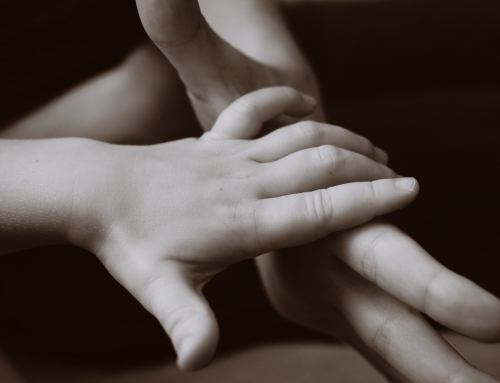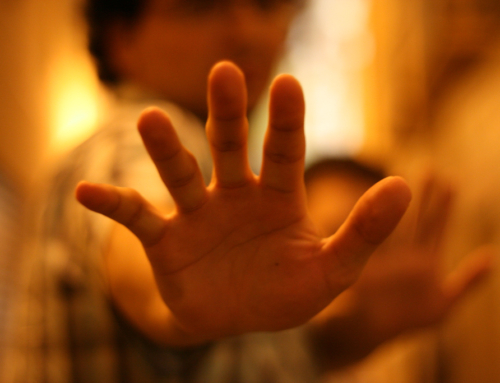By Amanda Rowett, MA, LHMCA, Seattle Christian Counseling
Proverbs 25:28 “He who has no rule over his own spirit is like a city that is broken down without walls” (NKJT).
 Proverbs 25:28 paints a picture of someone who lacks control over their lives. In Biblical times, it was necessary for cities to have walls surrounding them for protection. Without protection, cities were vulnerable and defenseless against attacks and became broken-down, with all its valuables stolen. The main message is this: a life without boundaries, can leave us feeling powerless, ransacked and broken.
Proverbs 25:28 paints a picture of someone who lacks control over their lives. In Biblical times, it was necessary for cities to have walls surrounding them for protection. Without protection, cities were vulnerable and defenseless against attacks and became broken-down, with all its valuables stolen. The main message is this: a life without boundaries, can leave us feeling powerless, ransacked and broken.
You are feeling burnout? Stress and tired? Is bitterness and resentment creeping into your relationships but you don’t know why? Do you have difficulty saying “no”? Do you feel controlled and powerless in your relationships? Do people tell you that you are overbearing and controlling? If you have answered “yes” to the majority of these questions, this is a good indicator that you need to implement boundaries in your life.
Boundaries help us thrive and prosper. “The purpose of having a good boundaries is to protect and nourish yourself so that you can cultivate healthy relationships with others” (Vallotton, 2011, p. 65). Vallotton goes further to state, when you voice your boundaries to others, they have an opportunity to respect your needs and when they honor what is important to you, trust flourishes and the relationship prospers. Boundaries also push us to better define ourselves and when we have a greater self- awareness we are better able to give of ourselves in relationships.
In order for you to establish boundaries you must grasp the concept of your own value. Recognizing your value in Christ will help you realize that you are worth protecting. Moreover, if you aren’t taking care of yourself, how can you give in your relationships and succeed in life? If we give and give, we eventually experience burnout. Like the airplane flight attendants say, put on your own oxygen mask, before assisting others. This is so true, but often forgotten.
Boundaries Defined
In our world around us, there are many examples of boundaries. We see stop signs, yield signs, walls, white picketed fences, hedges, and traffic lanes which are all physical boundaries. All these physical boundaries indicate the beginning and ending of property. Also property usually implies there is an owner responsible for maintaining that property. For example, roads belong to the city and homes belong to the homeowners and these people are responsible of taking care of this property. These same concepts apply to the self and relationships.
 Boundaries Indicate Identity and Ownership
Boundaries Indicate Identity and Ownership
Cloud and Townsend (1992) state, “Boundaries define us. They define what is me and what is not me. A boundary shows me where I end and someone else begins, leading me to a sense of ownership”(p. 35). In other words, your personal boundary lines define what is you and what is not you, just as property lines defines which yard is yours and which one is your neighbor’s. Boundaries give you identity: this is me, my gifts, values, feelings, needs, beliefs, etc… Cloud and Townsend explain that understanding what you own and are accountable for, gives you a sense of freedom. If you know where your yard is, you are free to do with it as you wish. Cloud and Townsend go further to describing how confusing it would be if someone told you to guard their property but they did not tell you where the property begins and ends.
Problems occur when we start to take ownership of things that are not our property. For example, a single mom is paying her 38 yr old son’s financial debts. She has three jobs and 2 small children and he is sitting home watching TV. This mom is taking ownership of a problem that is not hers. Although, she cares for her son and wants to help, her actions are enabling him to not take responsibility for his own life. Problems also occur when we give up our ownership and empower others to make decisions for us. For example, your best friend becomes jealous when you spend time with anyone but her. To pacify her, you cancel all your other plans and spend the majority of time with her because you don’t want her to be angry with you. “Powerlessness is the process of giving away ownership and empowering someone or something else as your sole decision maker” (Vallotton, 2011, p.61).
The only way to become a healthy person and have healthy relationships is to assume the ownership for that which is yours. So what are you responsible for and what is within your control? You are responsible for you. You are responsible for your own body, feelings, thoughts, spirit, choices, attitudes, values, talents, desires and behaviors. In other words, you are responsible for your health, to make good choices, to think positive thoughts and to have a good attitude.
Boundaries Offer Safety and Limits
Boundaries provide protection from danger but also allow us to experience goodness. Boundaries often get confused with walls. Walls keep us closed off from receiving both bad and good. Boundaries must be permeable, allowing the good in and keeping the bad out (Cloud & Townsend, 1992). For example, the doors in your home are there to keep intruders from coming in, but at the same time let friends enter. As a homeowner, you decide who enters your home. Imagine, you are a house and inside that house are the things that are most precious to you. You decide who comes to your house and how far you want to let them into your house.
For example, some people, such as thieves are not allowed to come into the house. Your acquaintances might stay on the sidewalk and you might just wave to them from your porch. Some people might be allowed to come into the yard; others onto the porch and the closest of friends come inside. In sum, because you are responsible for you, you get to choose the people you want to share yourself with and chose the level of intimacy you desire.
Boundaries also establish limits. We must let people know when they are trespassing on our property. For example, when a husband physically abuses his wife that is a physical boundary being crossed. When a friend calls you a looser, that is an emotional boundary that has been violated. What are your limits? A good indicator of your limits is recognizing when you feel hurt physically or emotionally. Part of taking care of yourself and being responsible for yourself, is letting people know when they are have hurt you or trespassed on your property.
Examples of Boundaries
There are many examples of ways we can set boundaries. First, remembering your physical self is a boundary. My body is mine and your body is yours and we are separate beings. Words are boundaries. Cloud and Townsend (1992) state, “you can create good protective fences with your words” (p. 41).
For example the words “no” and “yes” are boundary setting words. Distance is also a boundary. By physically removing yourself from a negative situation you are creating a boundary of distance. Time away from a person or task can be a way to establish balance again. Emotional distance is a way to repair from pain.
Setting Boundaries
With setting boundaries there is always a risk of losing relationships. Because we were built for relationship, relying on God’s strength and everlasting love and the support from healthy relationships can help us make positive choices to set boundaries and say “no” to abuse. If you see any symptoms of boundary problems in your life, talking with a counselor can help you locate where your boundaries need to be repaired and give you the strength to regain ownership of your property or relinquish ownership that is not yours to control.
Images cc: freedigitalphotos.net – “Wooden Signpost” by anankkml and Microsoft free image








